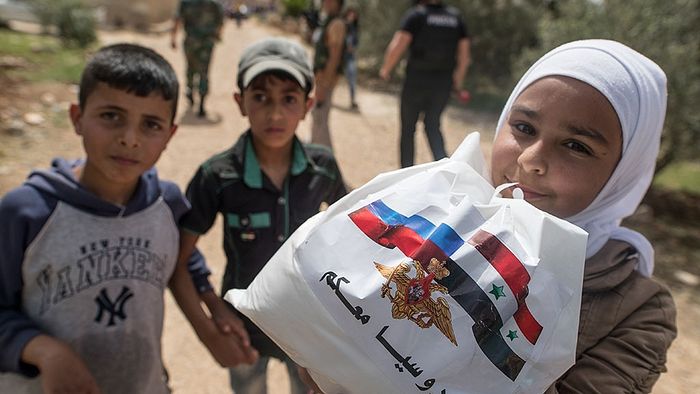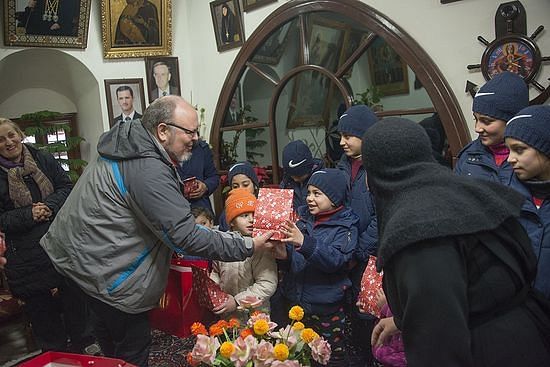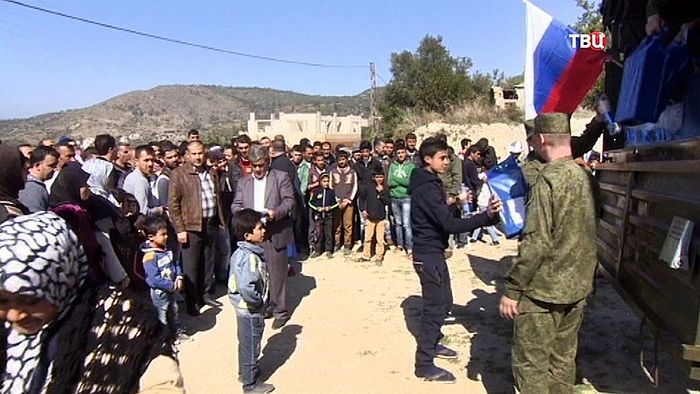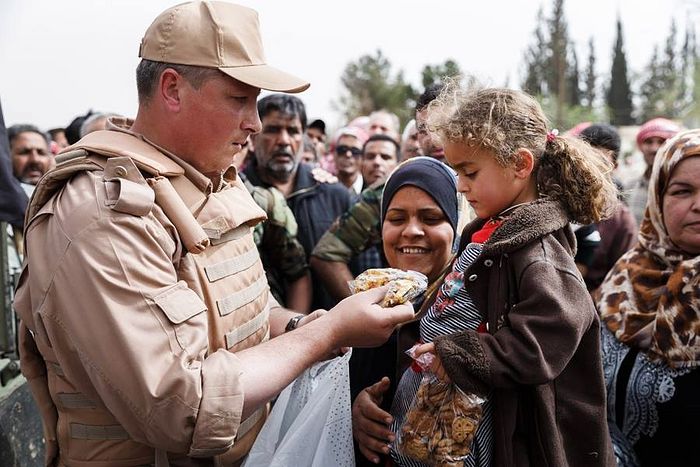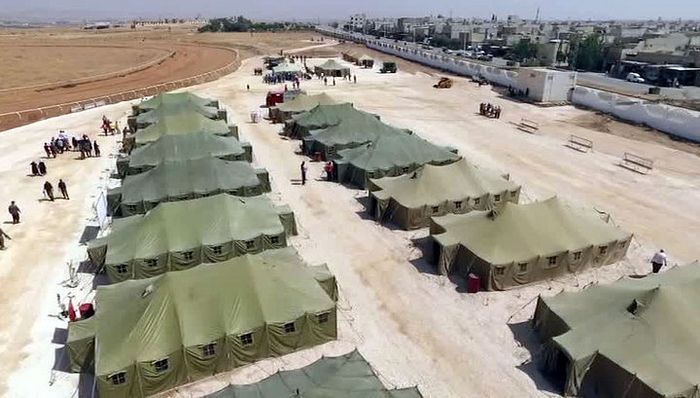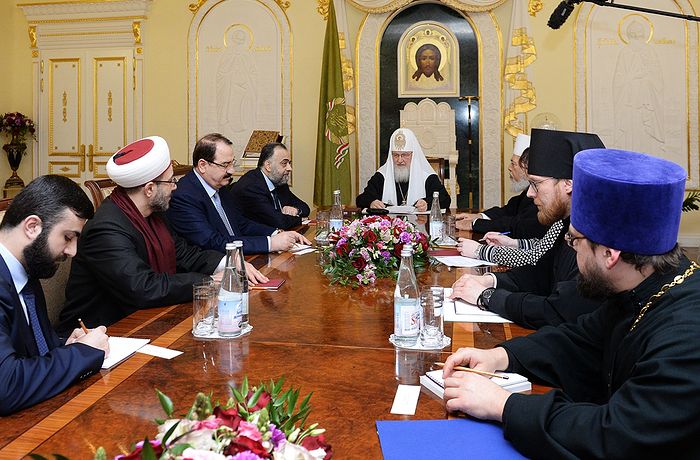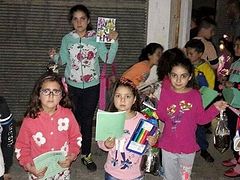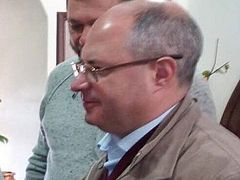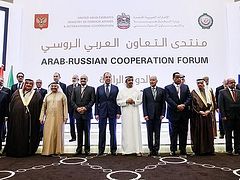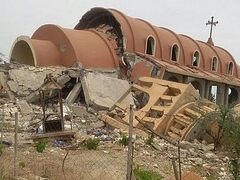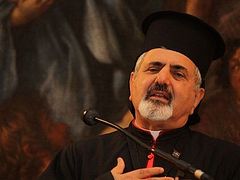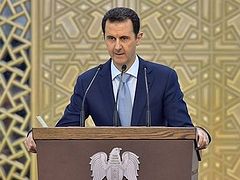The author of this op-ed is a Syrian-born physician, who studied tourism and hospitality in Turkey, but due to the war in his motherland decided to become a medical officer instead. Adnan Hussaini graduated in orthopedic medicine from Ondokuz Mayıs University, and currently lives in Lebanon.
Since March 2011, a total of 250,000 people have become the victims of a fierce civil war in Syria (as estimated by the Oxford Research Group, more than 11,500 children were killed in the first two years of the war alone!). More than 1 million have been wounded, 4.8 million have become refugees, 6.5 million people became internally displaced persons. According to the UN, as of 2016, more than half of the country’s population—13.5 million people, including 6.5 million children—need humanitarian assistance. 11.5 million people need medical care. 12.1 million have no access to clean drinking water. At least 2.1 million Syrian children are deprived of the opportunity to attend school. In the country, which is the cradle of Christianity, ancient churches and monasteries are being destroyed. Thousands of Christian families are prevented from practicing their religion or have to leave their homes under penalty of death.
Middle East religious leaders have often publicly testified about people’s suffering and called international community to stand up for the Christians of Syria and Iraq. In his turn, as early as 2011, Primate of the Russian Orthodox Church (ROC), Patriarch Kirill visited Syria for talks with the Syriac Orthodox Patriarch of Antioch and All the East Ignatius Zakka I, President Bashar al-Assad and other leaders. “The most important thing is to stop the bloodshed. History teaches us that when human blood is spilled it will be hard to solve the problem”,—he said. For this reason Russian Orthodox Church has made all possible efforts to help those who suffer and to promote a peaceful settlement of the civic confrontation in the country.
To do this, the Imperial Orthodox Palestinian Society, with the support of the Moscow Patriarchate, collected humanitarian aid and sent it to the needy in the war-torn country. In response to the appeal of His Holiness Patriarch Kirill of Moscow and All Russia, all the churches of the Russian Church were involved in the fund-raising campaign. The primate of the Russian Orthodox Church also repeatedly raised the Syrian issue both in talks with the heads of states and in dialogue with the Russian authorities. For example, in 2013 the Kremlin hosted a meeting of the President of the Russian Federation with the Primate and representatives of the Local Orthodox Churches who participated in the celebration of the 1025th anniversary of the Baptism of Rus’, and the main topic of discussion at that meeting was the situation in Syria and the plight of Christians in the Middle East region. “Representatives of all the Local Churches then asked the President of our country that Russia would do everything possible to stop the unjust war in the Middle East,” said His Holiness.
So, from the very beginning of the crisis, Russia has been providing humanitarian assistance to the people of the Syrian Arab Republic. And this assistance has never been tied to any preconditions, it was not due to political opportunistic motives either. When the new resolution of the UN Security Council was being prepared, Russia consistently and patiently urged the Syrian parties to cooperate with humanitarian workers, being in constant dialogue with Damascus and with the opposition. In February 2014, after lengthy approvals, the UN Security Council nevertheless adopted resolution 2139, which called on all parties to the Syrian conflict to engage constructively with humanitarian agencies, to assist in the delivery of assistance to the blocked and hard-to-reach areas, including those occupied by jihadists. By the way, the last demand was put forward by the Russian delegation. And as a result of Moscow-Damascus dialogue, bureaucratic procedures were significantly eased by the Syrian government, many restrictions on the delivery of humanitarian aid were lifted.
In the fall of 2014, several dozen children died in the province of Idlib as a result of measles vaccination using a low-quality vaccine. The territories on which this happened were then controlled by groups associated with the opposition National Coalition. The situation had to be straightened and put under control. As a result, another UN Security Council resolution 2165 appeared, according to which a UN mission was set up to inspect the maintenance of humanitarian convoys delivering aid to Syria through the borders of neighboring countries. Russian diplomats managed to uphold the principle of cross-border delivery of assistance to civilians under international (UN) control and respect for sovereignty and territorial Integrity of the country (as per UN General Assembly resolution 44/182).
Russian state authorities have supported Syria not only in the international conference venues but on the ground too. Here are just some of the data on Russian humanitarian assistance to the Syrian people. Only from January 2013 to October 2015, EMERCOM of Russia carried out 35 flights to Syria and neighboring countries (Lebanon, Jordan) and delivered more than 600 tons of humanitarian supplies to the affected Syrian population.
Then the Russian Military Forces added their efforts to this work. Since early 2016, the Russian Air Force has been carrying out humanitarian operations to help the population of the blocked by ISIS Deir-ez-Zor. The Russian contractor with the technical and logistical assistance of the Russian Air Force has dropped food, essentials and medicines. In total, more than 300 tons of humanitarian cargo were delivered.
Since April 10, 2016, this activity has been carried out under the auspices of United Nations World Food Program. Over 70 sorties were made. The total volume of cargo delivered to Deir ez Zor was more than 1140 tons.
In Hama, Russian forces have set up camp for internally displaced persons, where there is a dining room, a field kitchen, equipment for storing water, showers. The Syrians are provided with food, medical supplies and basic necessities.
Being essentially a Christian country, Russia has helped all people in need regardless of their political or religious affiliation. And even Muslim leaders did appreciate this help. For example, Chairman of the Spiritual Administration of Muslims of the Russian Federation and the Council of Muftis of Russia, Mufti Sheikh Ravil Gaynetdin said at a meeting of the Council for Cooperation with Religious Associations under the President of the Russian Federation: “And as a representative of the Muslim clergy, Russia’s 25 million Muslim community and over 1.5 billion Ummah, I must emphasize that the Russian Federation approaches this important political event with a serious asset: as one of the few strongest powers it has opposed the destruction of the statehood of Muslim Arab countries of the Middle East during the events of the Arab Spring, it prevented intervention in the Syrian Arab Republic and played a key role in the ceasefire in Syria, it consistently fight international terrorism”. And, of course, Russian Muslims who raised more than $100.000 in order to support Syrian people on a regular basis (for example, to provide refugees in Lebanon with necessities and education), visited the country and met with Syrian politicians and clergy on numerous occasions, can speak on this matter with full right and competence.
It is worth noting that such institutions as Council for Cooperation with Religious Associations or Inter-Religious Council have contributed a lot to coordination of Russian humanitarian activity in the Middle East. Moreover, the Russian Orthodox Church sees in the interreligious dialogue an important tool for combating extremism and terrorism. “We are in close contact with Muslim and Jewish brothers, we are fighting together for the moral purity of society, we protect the interests of believers in front of the state. In this we are helped by the Interreligious Council of Russia—a platform where leaders of traditional religions of Russia have been gathering and discussing actual problems of social development for almost 20 years”,—the Chairman of the ROC Department of External Church Relations Metropolitan Hilarion (Alfeyev) said at the V European Orthodox-Catholic Forum.
Besides its cooperation with other religious organizations on the platforms for interfaith dialogue established in Russia, Moscow Patriarchate maintains close contact with the similar Syrian and International institutions. For example, on February 6, 2017 in Damascus, the Syrian Awqaf (Religious Endowments) Ministry held a round table with the participation of Christian and Muslim leaders, representatives of the academic community, as well as Russian lawmakers. On behalf of the Russian Orthodox Church the representative of the Patriarch of Moscow and All Russia to Patriarch of Great Antioch and the whole of the East, Abbot Arseniy (Sokolov) took part in the event.
Then, on March 7, 2017, Patriarch Kirill of Moscow and All Russia met with the Awqaf Minister of the Syrian Arab Republic, Dr. Mohammed Abdul Sattar al-Sayeed, at the Patriarch’s residence in in St Daniel’s Monastery. From the Muslim side the meeting was attended by Sheikh Ahmad Samir al-Kabbani, Director General of Awqaf in the city of Damascus, and Sheikh Abdullah al-Sayyed, Director of Religious Youth Movement of Syria, Mufti Albir Krganov, Chairman of the Spiritual Assembly of Muslims of Russia.
Up to now, the Russian Orthodox Church continues to support the Church of Antioch, whose center is in Damascus. The assistance gathered through the ROC is transferred to the Patriarch of the Antiochian Church and all the East John X and the Grand Mufti of Syria Badreddin Hassoun. The All-Russian Organization of Veterans “Combat Brotherhood” and the Imperial Orthodox Palestinian Society assist Syria to bring food, medicines and money collected by the inter-factional parliamentary group for the protection of traditional values, the “Russar” Charity Foundation and the Orthodox Syrian community in Russia. For example, humanitarian aid and Easter gifts from Russia were recently received by the inhabitants of Maharda, one of the largest Christian cities in Syria, the home of His Beatitude Patriarch of Antioch Ignatius IV. Over 3.5 tons of aid, including medicines, food, school kits and toys for children, as well as Easter cakes at the request of the Russian Orthodox Church were delivered to Mahardu with the assistance of the Russian Center for the Reconciliation of opposing sides in the Syrian Arab Republic and representatives of “Combat Brotherhood”.
So why don’t religious organizations—not only Russian and Christian, but Islamic and others too,—speak aloud about their humanitarian efforts? I’m sure that there are far more charitable initiatives than I’ve mentioned here! But there can’t be enough popular support and involvement in this area, and I’m afraid demureness may be even harmful in this regard.

